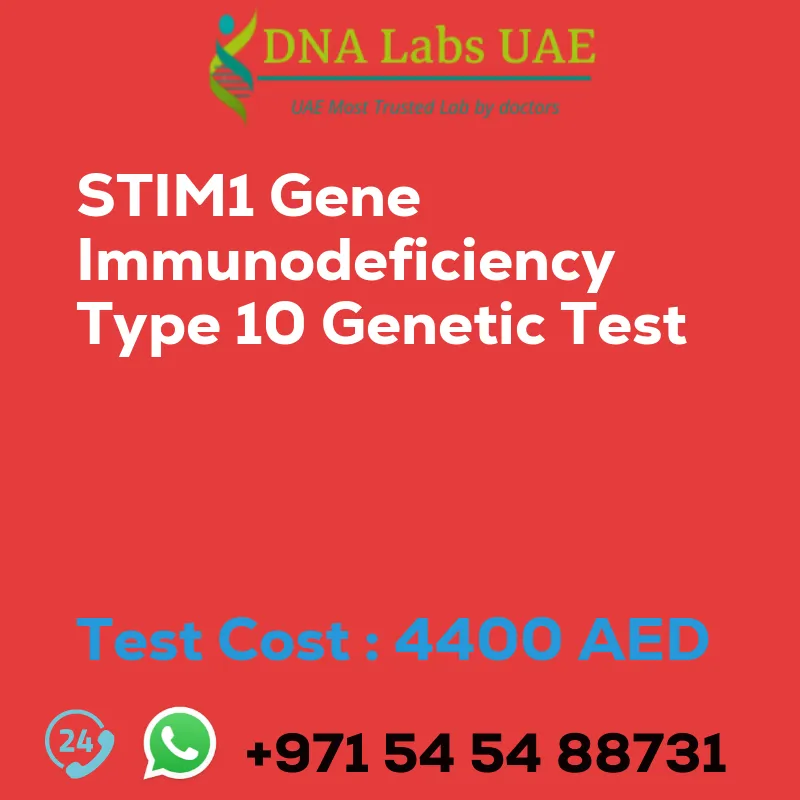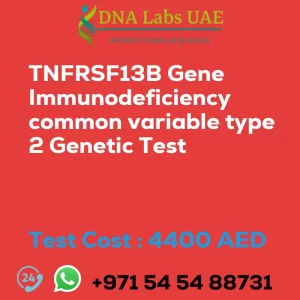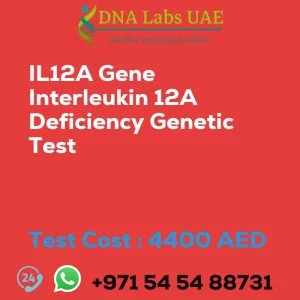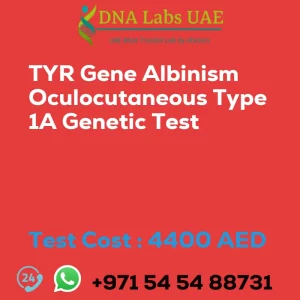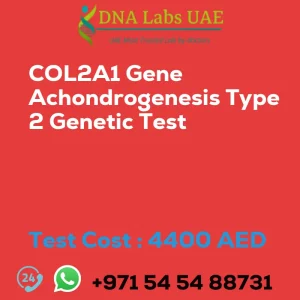STIM1 Gene Immunodeficiency Type 10 Genetic Test
At DNA Labs UAE, we offer the STIM1 Gene Immunodeficiency Type 10 Genetic Test. This test helps diagnose and identify mutations or variations in the STIM1 gene, which is associated with a rare genetic disorder called immunodeficiency type 10 (IMD10).
Test Details
The STIM1 gene is responsible for immunodeficiency type 10, a disorder characterized by a weakened immune system, making individuals more susceptible to infections. Our Next-Generation Sequencing (NGS) technology allows us to analyze and sequence multiple genes simultaneously, including the STIM1 gene.
Test Components
- Test Name: STIM1 Gene Immunodeficiency Type 10 Genetic Test
- Price: 4400.0 AED
- Sample Condition: Blood or Extracted DNA or One drop Blood on FTA Card
- Report Delivery: 3 to 4 Weeks
- Method: NGS Technology
- Test Type: Osteology Dermatology Immunology Disorders
- Doctor: Dermatologist
- Test Department: Genetics
Pre Test Information
Prior to the test, we recommend providing us with the clinical history of the patient who is going for the STIM1 Gene Immunodeficiency Type 10 NGS Genetic DNA Test. A Genetic Counselling session will be conducted to draw a pedigree chart of family members affected by the STIM1 Gene Immunodeficiency Type 10.
Test Procedure
The STIM1 Gene Immunodeficiency Type 10 NGS Genetic DNA Test requires a DNA sample, which can be obtained through a blood sample or cheek swab. The DNA is then extracted and prepared for sequencing. Using our NGS technology, we sequence the DNA and identify any variations or mutations in the STIM1 gene.
Test Results and Genetic Counseling
The results of the NGS genetic test can provide valuable information about the presence of mutations in the STIM1 gene, aiding in the diagnosis of immunodeficiency type 10. This information can also be used for genetic counseling, providing insights into the inheritance pattern and recurrence risk for affected individuals and their families.
It is important to note that NGS genetic testing for STIM1 gene immunodeficiency type 10 should be ordered and interpreted by healthcare professionals with expertise in genetics and immunology.
| Test Name | STIM1 Gene Immunodeficiency type 10 Genetic Test |
|---|---|
| Components | |
| Price | 4400.0 AED |
| Sample Condition | Blood or Extracted DNA or One drop Blood on FTA Card |
| Report Delivery | 3 to 4 Weeks |
| Method | NGS Technology |
| Test type | Osteology Dermatology Immunology Disorders |
| Doctor | Dermatologist |
| Test Department: | Genetics |
| Pre Test Information | Clinical History of Patient who is going for STIM1 Gene Immunodeficiency type 10 NGS Genetic DNA Test. A Genetic Counselling session to draw a pedigree chart of family members affected with STIM1 Gene Immunodeficiency type 10 NGS Genetic DNA Test gene STIM1 |
| Test Details |
The STIM1 gene is associated with a rare genetic disorder called immunodeficiency type 10 (IMD10). This disorder is characterized by a weakened immune system, making individuals more susceptible to infections. NGS (Next-Generation Sequencing) genetic testing is a technique used to analyze and sequence multiple genes simultaneously. In the case of IMD10, NGS can be used to identify any mutations or variations in the STIM1 gene that may be causing the immunodeficiency. The NGS genetic test for STIM1 gene immunodeficiency type 10 involves obtaining a DNA sample, typically through a blood sample or cheek swab. The DNA is then extracted and prepared for sequencing. Using NGS technology, the DNA is sequenced, and any variations in the STIM1 gene are identified and analyzed. The results of the NGS genetic test can provide valuable information about the presence of mutations in the STIM1 gene, which can help in diagnosing immunodeficiency type 10. This information can also be used for genetic counseling, as it may provide insights into the inheritance pattern and recurrence risk for affected individuals and their families. It is important to note that NGS genetic testing for STIM1 gene immunodeficiency type 10 is typically performed by specialized laboratories and should be ordered and interpreted by healthcare professionals with expertise in genetics and immunology. |

